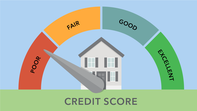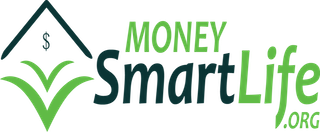Archives
May 2020
Categories
All
|
Back to Blog
Where are you on the COVID-19 Pandemic Financial Experience Scale? Working-class people are experiencing this pandemic very differently financially. There are 3 benchmarks on the scale. This is a look at the second benchmark, "Treading."
TREADING MODE For you, the crisis is disruptive but not destructive. You have some reserves and a safety net. You are experiencing diminished income. You can maintain most of your lifestyle with a combination of reduction of non-essential expenses and subsidies from your stockpiles of food and finances. There are finite amounts of those resources available. Here are some tactics you can use to help you maintain the status quo for a while.
Credit card forbearances can be tricky. It's all about the interest and how it reports to the credit bureaus. I've heard of some very generous terms. ‘Current balance held at no interest until paid in full as serviced by a minimum payment.’ It is also reported to the credit bureaus as "paid as agreed." If you currently have a statement balance that amounts to an interest-free loan instead of the legally usurious interest rates credit cards charge now. Double-check to see if the terms apply to cash advance balances also. Often you "voluntarily" agree not to use the credit card during the forbearance period. If your credit servicer is not offering generous terms, make your minimum monthly payment during the pandemic. (If you are unable to make your minimum monthly payments, you are in Surviving mode.) Keeping your word is paramount in this situation. Do not make commitments you can't keep. You may have to go back to your creditors for additional relief. Broken payment promises may make them less likely to provide help.
0 Comments
Read More
Back to Blog
COVID-19 Mortgage Forbearance4/6/2020 
COVID-19 is affecting many business collection practices. If your bank is anything like mine, you got an email notification that they were offering payment deferrals for mortgages and credit card customers. In this post, we're going to take a look at what deferred payments or a forbearance looks like in your mortgage account should you choose one and what are the pros and cons of a mortgage forbearance.
Forbearance is when you and your mortgage company agree to temporarily suspend or reduce your monthly mortgage payments for a specific period. This allows you to deal with short-term financial problems by giving you time to get back on your feet and bring your mortgage current. Keeping your word is paramount in this situation. Do not make commitments you can't keep. You may have to go back to your creditors for additional relief. Broken payment promises may make them less likely to provide help. You should contact your mortgage servicer to see what terms are offered. Doing so will help you better understand your options. It is always better to contact a creditor before you get behind on payments. You have to request and qualify for forbearance. If you have a federal loan (FHA, VA, USDA), your qualification is guaranteed during the COVID-19 pandemic. A forbearance allows you to maintain your cash as you navigate through a temporary crisis. Typically, the forbearance is for three months. You don't have to pay your mortgage during a forbearance. That deferred monthly payment becomes a cash cushion for you during this time. Understand a 'deferred payment' doesn't mean a 'never payment.' You will eventually have to make up any deferred payments. Please read the previous two sentences again. Deferred payments may accrue additional interest and extend the length of your mortgage, depending on the forbearance terms. If your monthly payment includes an escrow amount, that will also be deferred. That will create an escrow shortage. An escrow shortage will increase your monthly mortgage payment escrow amount the next time your servicer does an escrow reconciliation. Be aware and prepare for such an eventuality. Escrow shortages and reconciliation timing can create future monthly mortgage payment volatility. You can pay your escrow amount during the forbearance to prevent a deficiency. If you decide to do this, verify your partial payments are credited to your escrow balance. Before you agree to the forbearance, understand how it will report to the credit bureaus. Most lenders will not report your account to the credit bureaus during the forbearance, if you abide by the terms of the forbearance. The credit score impact of a late monthly mortgage payment can be devastating and long term. Most new credit scoring models more heavily weigh mortgage than other types of payments when calculating your payment history. Some newer credit scoring models treat late payments during a natural disaster less harshly. Surely the COVID-19 pandemic is a natural disaster. In times of financial uncertainty, cash on hand gives you options. A deferred payment doesn't increase your income. It lowers your outgo. During such times, reducing your monthly obligations is prudent. You can always pay your mortgage during or after the forbearance. Should you take a mortgage forbearance offered during the pandemic? For the vast majority of borrowers, that answer would be yes. A lot depends on where you are on the pandemic financial disaster scale. There are three benchmarks on the scale:
Regardless of your situation, your deferred payments are not for vacations, entertainment, clothes, and other things "you deserve or owe to yourself." Do not use debt to finance your wants. Wants are why you have savings accounts. Beware of "easy money." Don't get greedy and let a short-term decision lead to long-term financial turmoil. Here are two other considerations. First the less time you have left on your mortgage, the more impractical a forbearance. Since now, the majority of your payment is going toward extinguishing your principal and not interest. In such a situation, access forbearance in an extreme emergency only. Second, home equity line of credit (HELOC) loans are considered revolving accounts by most banks and generally don't offer traditional mortgage forbearance. Even though the loan is secured by your home. Most lenders will try to assist, if you need it. No one knows the final impact of the virus or how long the pandemic will last. Every family is sure to be buffeted by its economic turbulence. Society will respond in various ways. There are future financial decisions to be made. But for now, taking a mortgage forbearance makes sense for a lot of us.
Back to Blog

Your behavior is one crucial factor that determines your financial well-being. It is not just what you know to do, but what you actually do that counts. Knowing you must save for retirement is different than saving for retirement. Knowledge should inform behavior not to be a substitute for it.
The next behavior in our look at six financially healthy behaviors is managing existing debt and has access to potential resources. This is your skills and ability to control your debt. And your capacity to generate outside resources in times of need. Let’s take a look at each. Manages Existing Debts
Back to Blog

If you have done some things right and your financial house appears in order, a relative will ask you to co-sign a loan for them. Co-signing is only one of the ways available to help your credit-challenged relative. There are other ways that may deliver the desired results with less exposure and risk for you, especially with a little bit of planning.
Let’s look at your options and so you can make an informed choice about co-signing. When you co-sign you become a JOINT account holder. Each and every member on a joint account agrees to be individually responsible for 100% scheduled repayment of the outstanding debt regardless of the other members' payments or promises. When you co-sign if a payment is missed, your credit score will receive the full negative impact of the late payment. This could be catastrophic if it compounds an already diminished credit score. No doubt, the new co-signed loan’s high-balance-to-limit ratio, and short history have already reduced your credit scores several points. That happened just by signing up; missed payments or not. So be prepared to take a credit score hit when you co-sign. How long will it take your score to recover from these factors assuming a pristine repayment history? The answer depends on several factors. Credit scoring is an art and a science. Whatever calculations the algorithm conjures to determine our scores, the following is empirically factual for every credit score. They go down a helluva lot faster than they rebound. It is never down one month; up the next for any credit scoring model in existence regardless of the previous history. If your relative needs you to co-sign to “build credit” then you can also do that by making them an authorized user on your credit cards. If you do, you will almost immediately transfer your credit history to theirs. And without any risk or exposure to new debt for either of you. Now, this strategy will not work for impulse or emergency “gotta have a co-signer or else “ situations. But adding someone as an authorized user can be the gift that keeps on gifting. As with most successful credit score improvement strategies, the more time you give this one, the better. But the gift isn’t for everyone. Here are six questions whose answers will help you decide if your situation is a fit for the authorized user strategy:
Good credit grandparents can leave good credit legacies safely to multiple generations since there are rarely limits on the number of authorized users. Just make sure that each of the six questions has the right answer.
Back to Blog
 There may come a time in a relationship, as things get more serious, the question, "what is your number?" may be asked. Of course, that question usually is only asked or answered in a serious relationship. So assume, the relationship is serious enough to provide an answer. There is a decision to be made on how to answer. Self-inflicted shame and guilt may tempt you to be other than honest. What kind of number will be acceptable for your partner? Does your past behavior contradict or affirm your stated goals/beliefs? Are you worried about what your number says about how you behave and what you believe? If you are going to answer, you should answer the question honestly. An honest answer would be best if you decide to answer at all. By the way, if you can't answer honestly, you are not serious about the relationship or self-deceived. So how should you answer the question, "What's your number?" Get your mind off your crotch for a minute. I'm not talking about your body count but instead money. I'm talking about your savings number. Your debt number. Your income number. Just as it is essential to know your partner's sexual behavior, likewise you should know their money behaviors. STDs are real. Avoid STDs, Sexually Transmitted Debt. Know your risk factors and resources. If you are serious, here are some numbers you need to understand about your partner. Some may be deal-breakers. Maybe it's time to be tested. Share and understand credit reports
|
MONEYSMARTLIFE.ORG EMPOWERING SUSTAINABLE FINANCIAL WELL-BEING IN WORKING CLASS FAMILIES

 RSS Feed
RSS Feed



